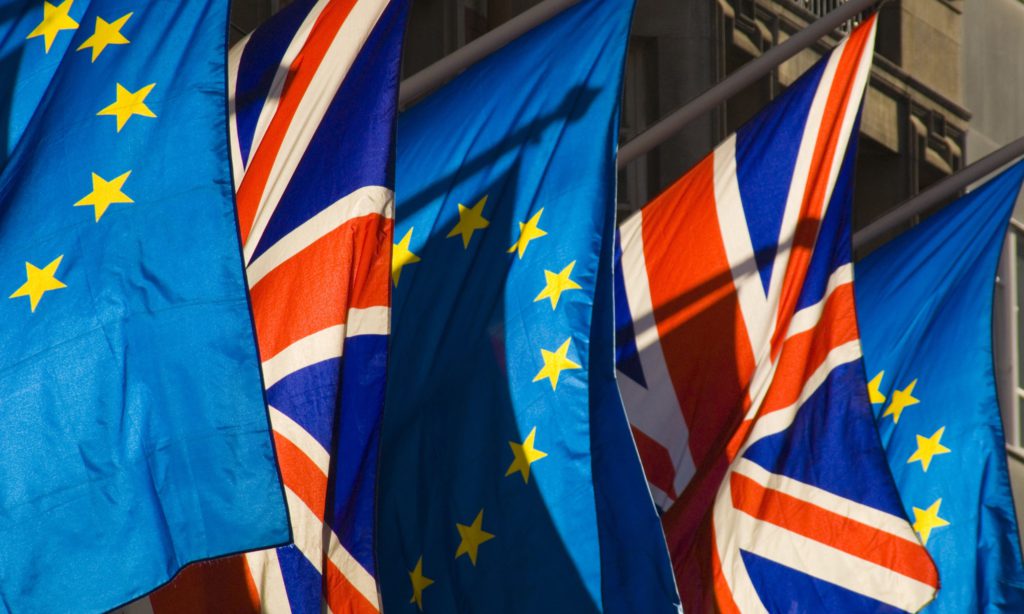 17 October 2019
17 October 2019
Alasdair Smith is an Emeritus Professor of Economics at the University of Sussex and is a member of the UK Trade Policy Observatory.
Most of us may not yet have found the time to read and absorb the text of the new Brexit withdrawal agreement, but we can read the texts which “a Number 10 source”, whom we non-journalists are allowed to call Dominic Cummings, has sent to journalists. These texts deserve critical scrutiny.
“Britain is out of all EU laws. We will be able to change our laws in a huge number of areas – from product standards to fishing rules to farming subsidies – where we are currently bound by EU rules.”
Unfortunately, Dominic, the next stage in our discussions with the EU will be about the free trade agreement which we hope will come into force at the end of the transition period in December 2020. Access for UK goods to the EU market will require agreement with the EU on product standards (realistically, the conformity of UK goods to EU product standards). Furthermore, many UK-based producers will in any case wish to conform to EU standards. UK-based car producers will want European type-approval certificates for their cars, so they will have to have the certification done by agencies in the EEA, subject to the jurisdiction of the European Court.
And as you know, Dominic, most of the fish caught by the UK fishing fleet is sold in EU markets, and access to these markets will be conditional on agreement with the EU on fishing rules and on EU access to UK waters. Access of UK farm products and food manufactures to EU markets will similarly be conditional on agreement on agricultural subsidies and food standards.
“We will be able to strike our own free trade deals. We will have an unqualified right to strike our own trade deals around the world, and the whole UK will participate in them.”
Well, Dominic, we will indeed have the ability to do trade deals around the world. But consider just one example of how that freedom will be limited. Brexiters have long criticised the EU trade policy that protects European sugar beet producers (including UK sugar beet farmers) by raising sugar prices. Yes, after Brexit the UK will be able to import cheaper sugar from around the world. But if UK sugar prices are lower than in the EU, the EU will impose tariffs not only on sugar from the UK, but also on a wide range of high-sugar food manufactures from the UK.
The whole UK will not participate in the dubious benefits on lower sugar prices, because customs arrangements on the border between Britain and Northern Ireland will have to be put in place to ensure that low-priced sugar and sugar-based food products do not slip into the EU across the Irish border. Food manufacturers in Northern Ireland will almost certainly not have access to sugar at UK prices.
“Northern Ireland will be in the UK customs territory forever. There is now no doubt that Northern Ireland remains part of the UK customs territory and will benefit from the free trade deals we strike.”
Your repetition and the words “no doubt” betray your own lack of confidence in these words. Northern Ireland will obey the customs rules and product regulations of the EU and be subject to the jurisdiction of the European Court, whatever ritual words are recited about the UK customs territory. If you wish, you can march naked down Whitehall with a placard saying that you are in Outer Mongolia, but the reality is that you are subject to the laws of the UK enforced by the Metropolitan Police, who will not care what your placard says. The reality for Northern Ireland is that it will be subject to the rules of the EU’s customs territory.
The freedoms from economic reality promised by Brexit are, and always have been, a grand illusion.

Photo by David Pearson/REX_Shutterstock (692888bv)
Disclaimer:
The opinions expressed in this blog are those of the author alone and do not necessarily represent the opinions of the University of Sussex or UK Trade Policy Observatory.
Republishing guidelines:
The UK Trade Policy Observatory believes in the free flow of information and encourages readers to cite our materials, providing due acknowledgement. For online use, this should be a link to the original resource on our website. We do not publish under a Creative Commons license. This means you CANNOT republish our articles online or in print for free.
Thankyou! A brilliant and incisive piece. I particularly enjoyed it being written as if a letter to Dominic.
The phrase ‘the devil is in the detail’ comes to mind, not for the first time.
Your article seems to imply that the EU does not need to export anything to the UK; therefore have 100% of the negotiation leverage. I believe the UK / German trade balance heavily favors the Germans.
Yes and the fish factories need fish so they will need British fish more than ever and will have to back down or close